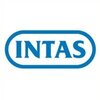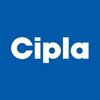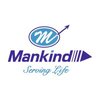Filter interviews by
Glenmark Pharmaceuticals Research Scientist Interview Questions and Answers
Glenmark Pharmaceuticals Research Scientist Interview Experiences
1 interview found

(1 Question)
- Q1. Why you want to join Glenmark family
(1 Question)
- Q1. Tell about your expertise
(1 Question)
- Q1. What do you do new for Glenmark with your expertise
Top trending discussions






Interview questions from similar companies

Interview Questionnaire
3 Questions
- Q1. 50 ppm solution?
- Ans.
A 50 ppm solution contains 50 parts of solute per million parts of solution.
ppm stands for parts per million.
It is a measure of concentration.
In a 50 ppm solution, there are 50 parts of solute per million parts of solution.
For example, if we have a 1 million mL solution, there would be 50 mL of solute in it.
- Q2. Method validation
- Q3. Method Development

I applied via Walk-in and was interviewed before Jan 2020. There was 1 interview round.
Interview Questionnaire
19 Questions
- Q1. Picometer
- Q2. Types of mass spectrometry
- Ans.
Mass spectrometry is a technique used to identify and quantify molecules based on their mass-to-charge ratio.
Electrospray ionization (ESI)
Matrix-assisted laser desorption/ionization (MALDI)
Gas chromatography-mass spectrometry (GC-MS)
Liquid chromatography-mass spectrometry (LC-MS)
Time-of-flight mass spectrometry (TOF-MS)
- Q3. Principle of uv spectrometry
- Ans.
UV spectrometry is a technique that measures the absorption or transmission of ultraviolet light by a sample.
UV spectrometry is based on the principle that different molecules absorb UV light at specific wavelengths.
It is commonly used in analytical chemistry to determine the concentration of a substance in a sample.
UV spectrometry can be used to analyze the purity of a compound or identify unknown substances.
The instr...
- Q4. How to prepare0.1 N HCl and NAOH
- Ans.
To prepare 0.1 N HCl and NaOH, you need to calculate the required amount of the respective chemicals and dilute them in water.
Calculate the molar mass of HCl and NaOH
Determine the volume of solution needed
Use the formula: Normality (N) = (Number of equivalents / Volume of solution in liters)
For 0.1 N HCl, calculate the number of equivalents of HCl and dilute it to the desired volume
For NaOH, calculate the number of equ...
- Q5. Tell me about yourself
- Q6. Quality assurance definition
- Ans.
Quality assurance is the process of ensuring that products or services meet the desired level of quality.
It involves establishing standards and procedures to ensure that products or services meet those standards.
It includes monitoring and evaluating the quality of products or services to identify areas for improvement.
It also involves taking corrective action when necessary to address quality issues.
Examples include co...
- Q7. Recollect all definitions
- Ans.
Recall definitions
Recall: the ability to retrieve information from memory
Definition: a statement that explains the meaning of a word or phrase
Research: the systematic investigation into and study of materials and sources in order to establish facts and reach new conclusions
Associate: a person who works with others towards a common goal
Hypothesis: a proposed explanation for a phenomenon
Experiment: a scientific procedure...
- Q8. Karl fisher titration
- Q9. Principle of autoclave
- Q10. Type of HPLC used
- Ans.
The type of HPLC used depends on the specific research requirements and objectives.
There are several types of HPLC systems available, including reverse phase, normal phase, ion exchange, size exclusion, and affinity chromatography.
The choice of HPLC system depends on the properties of the analyte, such as polarity, size, charge, and affinity.
For example, reverse phase HPLC is commonly used for the separation of nonpola...
- Q11. Questions about project
- Q12. Uv wavelength
- Q13. Detector used in uv and HPLC
- Ans.
UV detectors and HPLC detectors are used in research to analyze and quantify substances.
UV detectors are commonly used in UV-visible spectroscopy to measure the absorption of light by a sample at different wavelengths.
HPLC detectors are used in high-performance liquid chromatography to detect and quantify the components of a mixture.
Common types of UV detectors include diode array detectors (DAD) and photodiode array d...
- Q14. Gc basics
- Q15. Matrix in maldi ms system
- Ans.
Matrix in MALDI MS system is a substance used to assist in ionization of the sample for analysis.
Matrix is a substance that absorbs energy from the laser and transfers it to the sample, causing ionization.
The choice of matrix depends on the type of sample being analyzed.
Common matrices include alpha-cyano-4-hydroxycinnamic acid (CHCA) and sinapinic acid (SA).
- Q16. Pharmaceutical impurities
- Q17. Work breakdown structure
- Q18. Pka ph
- Q19. Buffers
Interview Preparation Tips
Skills evaluated in this interview

Research Associate Interview Questions & Answers
Intas Pharmaceuticalsposted on 1 Feb 2021
Interview Questionnaire
2 Questions
- Q1. Why are sparging nitrogen during filling
- Ans.
Sparging nitrogen during filling is done to prevent oxidation and maintain product quality.
Sparging nitrogen displaces oxygen from the container, preventing oxidation of the product.
Oxidation can lead to degradation of the product, affecting its quality and stability.
Nitrogen is an inert gas that does not react with the product, ensuring its integrity.
Sparging nitrogen is commonly used in the pharmaceutical and food in...
- Q2. Nitrogen is inert gas it provide stability to product.

Research Associate Interview Questions & Answers
Intas Pharmaceuticalsposted on 8 Feb 2021
I applied via Naukri.com and was interviewed in Aug 2020. There were 3 interview rounds.
Interview Questionnaire
4 Questions
- Q1. About our knowledge
- Q2. How are done analysis
- Ans.
Analysis is done through a systematic process of collecting, organizing, and interpreting data.
Data collection: Gather relevant information and data.
Data organization: Arrange the collected data in a structured manner.
Data interpretation: Analyze the data to draw meaningful conclusions.
Use of statistical methods: Apply statistical techniques to analyze the data.
Reporting: Present the findings and conclusions in a clear
- Q3. What is taken precautions doing analysis
- Ans.
Precautions taken during analysis
Ensuring accurate and reliable data collection
Maintaining proper documentation and record-keeping
Following established protocols and procedures
Implementing quality control measures
Validating and verifying results
Protecting confidentiality and privacy of data
Considering potential biases and limitations
Applying statistical analysis techniques appropriately
- Q4. How to safe instrument and equipment
- Ans.
To safely handle instruments and equipment, proper storage, regular maintenance, and following safety protocols are essential.
Store instruments and equipment in designated areas to prevent damage or loss.
Clean and disinfect instruments after each use to maintain hygiene.
Regularly inspect equipment for any signs of wear or malfunction.
Follow safety guidelines and protocols while handling instruments to prevent accidents...

Research Associate Interview Questions & Answers
Alembic Pharmaceuticalsposted on 6 Feb 2021
I applied via Recruitment Consultant and was interviewed in Aug 2020. There were 3 interview rounds.
Interview Questionnaire
1 Question
- Q1. General interaction, Technical Questions.
Interview Preparation Tips

Interview Questionnaire
1 Question
- Q1. Flow of artwork for different markets,SAP knowledgeable,Change Part Development

I applied via Naukri.com and was interviewed in Sep 2018. There were 5 interview rounds.
Interview Questionnaire
5 Questions
- Q1. Ask about basic knowledge of instrumental and Ask Logical question of analytical development
- Q2. About development HPLC Prep-HPLC
- Q3. Validation Quality guidelines
- Q4. Ask bout past company details Job role
- Q5. Experience Why to leave past job
- Ans.
Seeking new challenges and opportunities for growth.
Desire for new challenges and opportunities for growth
Seeking a more stimulating work environment
Looking to expand skill set and knowledge
Company restructuring or downsizing
Relocation to a new area
Interview Preparation Tips
Experience: As per my experience
General Tips: I would like to suggest that during interview confidence is very important. Give answers confidentially and maintain honesty threw out the interview. Whenever you don’t know the answer don’t argue with the sir.
Skills: Communication, Body Language, Analytical Skills
Duration: <1 week

Research Associate Interview Questions & Answers
Alembic Pharmaceuticalsposted on 19 Jun 2021
Interview Questionnaire
3 Questions
- Q1. What is HPLC
- Ans.
HPLC stands for High Performance Liquid Chromatography. It is a technique used to separate, identify, and quantify components in a mixture.
HPLC is a widely used analytical technique in chemistry and biochemistry.
It involves the use of a liquid mobile phase and a solid stationary phase to separate the components of a mixture based on their interactions with the stationary phase.
The components are separated based on thei...
- Q2. Difference between Zetasizer and the Mastersizer
- Ans.
Zetasizer measures particle size and zeta potential while Mastersizer measures particle size distribution.
Zetasizer uses dynamic light scattering to measure particle size and zeta potential.
Mastersizer uses laser diffraction to measure particle size distribution.
Zetasizer is used for colloidal systems while Mastersizer is used for dry powders and granules.
Zetasizer can measure particles in the range of 0.3 nm to 10 mic...
- Q3. Difference between hplc and uplc
- Ans.
HPLC and UPLC are both chromatography techniques used for separation and analysis of compounds, but differ in their operating pressures and particle sizes.
HPLC uses larger particle sizes and operates at lower pressures than UPLC.
UPLC uses smaller particle sizes and operates at higher pressures than HPLC.
UPLC provides higher resolution and faster separations than HPLC.
HPLC is more commonly used for routine analysis, whi...

Research Associate Interview Questions & Answers
Intas Pharmaceuticalsposted on 16 Dec 2023
I applied via Approached by Company and was interviewed before Dec 2022. There were 2 interview rounds.

(1 Question)
- Q1. Analytical method validation, its parameters
- Ans.
Analytical method validation parameters include accuracy, precision, specificity, linearity, range, and robustness.
Accuracy: Measures how close the test results are to the true value.
Precision: Measures the repeatability and reproducibility of the method.
Specificity: Determines the ability of the method to measure the analyte accurately in the presence of other components.
Linearity: Evaluates the relationship between t...
Glenmark Pharmaceuticals Interview FAQs
Tell us how to improve this page.
Glenmark Pharmaceuticals Interviews By Designations
- Glenmark Pharmaceuticals Field Sales Officer Interview Questions
- Glenmark Pharmaceuticals Senior Officer Interview Questions
- Glenmark Pharmaceuticals Medical Representative Interview Questions
- Glenmark Pharmaceuticals Junior Officer Interview Questions
- Glenmark Pharmaceuticals Production Officer Interview Questions
- Glenmark Pharmaceuticals Research Associate Interview Questions
- Glenmark Pharmaceuticals Production Supervisor Interview Questions
- Glenmark Pharmaceuticals District Sales Manager Interview Questions
- Show more
Interview Questions for Popular Designations
- Data Scientist Interview Questions
- Scientist Interview Questions
- Associate Scientist Interview Questions
- Senior Data Scientist Interview Questions
- Senior Scientist Interview Questions
- Senior Research Scientist Interview Questions
- Decision Scientist Interview Questions
- Jr. Data Scientist Interview Questions
- Show more
Glenmark Pharmaceuticals Research Scientist Interview Process
based on 2 interviews
Interview experience
Research Scientist Interview Questions from Similar Companies
Fast track your campus placements
Glenmark Pharmaceuticals Research Scientist Reviews and Ratings
based on 20 reviews
Rating in categories
|
Senior Officer
948
salaries
| ₹1.9 L/yr - ₹8.8 L/yr |
|
Officer
840
salaries
| ₹1.1 L/yr - ₹6.5 L/yr |
|
Assistant Manager
374
salaries
| ₹7.3 L/yr - ₹18 L/yr |
|
Junior Officer
342
salaries
| ₹1.9 L/yr - ₹5.9 L/yr |
|
Executive
340
salaries
| ₹5.1 L/yr - ₹12 L/yr |

Cipla

Dr. Reddy's

Lupin

Zydus Lifesciences
- Home >
- Interviews >
- Glenmark Pharmaceuticals Interview Questions >
- Glenmark Pharmaceuticals Research Scientist Interview Questions














